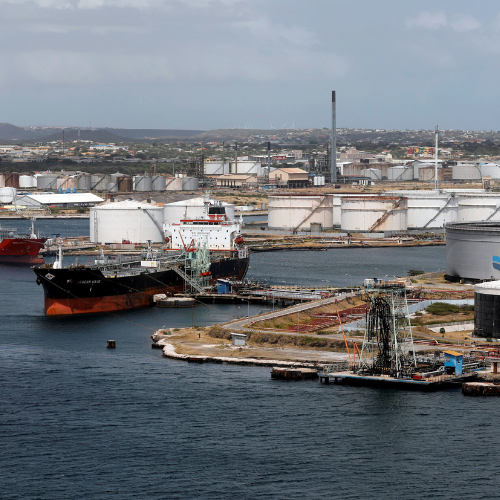Venezuela’s oil production took a hit in November, continuing a troubling trend as the country’s oil industry faces major challenges. According to a recent report from OPEC (Organization of the Petroleum Exporting Countries), the country’s crude oil output stood at 876,000 barrels per day (bpd) in November. This was a decrease of 20,000 bpd compared to October’s 896,000 bpd. Even the state oil company PDVSA reported a decline in production, from 989,000 bpd in October to 960,000 bpd in November.
This drop in production comes at a time when the Venezuelan oil sector has already been struggling. The country’s oil industry has been hit hard by a series of obstacles, including ongoing economic sanctions imposed by the United States. In addition, a recent explosion and fire at a major natural gas facility in eastern Venezuela disrupted the extraction and upgrading processes, leading to further delays. Although operations are being restored, production remains below the 1 million bpd mark that was once a goal for the country.
Increase in Exports Amid Reduced Output
Despite the drop in oil production, Venezuela managed to increase its oil exports by 10% in November, reaching 974,000 bpd, a level not seen in the past five years. Much of this increase in exports was due to the country tapping into its existing oil inventories. Sales to China and other Asian nations played a significant role in this rise. Venezuela’s flagship oil blend, Merey, maintained a stable price of US $59.58 per barrel during this period.
While Venezuela managed to boost its exports, the country’s oil sector continues to face immense difficulties. Sanctions have made it harder for Venezuela to secure investments in its oil infrastructure and find reliable customers. Since 2017, the U.S. government has imposed financial sanctions and an export ban on Venezuela, trying to cut off the country’s most important source of revenue and force a change in government.
The Threat of New Sanctions
The U.S. government has recently increased its efforts to tighten the pressure on Venezuela’s oil industry. The Biden administration, which has been active in enforcing sanctions, has been warning international companies about engaging with Venezuela’s oil sector without explicit permission. Since April 2023, many companies have been hesitant to work with Venezuela for fear of secondary sanctions, which can penalize companies that do business with the country.
Oil Prices Struggle Amid Weak Demand and Sanctions Uncertainty
In October 2023, the U.S. issued General License 44 (GL44), which allowed Venezuela to sell oil directly to global customers, bypassing unreliable intermediaries. However, this temporary waiver expired, and the U.S. Treasury Department has since issued further warnings, tightening restrictions on companies that engage with Venezuela’s oil industry. Recently, the U.S. blacklisted 21 Venezuelan officials, accusing them of supporting the government in power.
As part of the increased sanctions, the U.S. has also been threatening to revoke licenses that allow some foreign companies to operate in Venezuela. This includes companies like Chevron, which resumed operations in Venezuela in 2022 after receiving a waiver from the U.S. Treasury Department. If these licenses are revoked, the country could face a significant loss in foreign revenue, as much as 30-40%, according to estimates.
The U.S. government has made it clear that it is considering additional measures to increase pressure on the Venezuelan government. These sanctions are part of a broader strategy aimed at weakening the government of Nicolás Maduro and forcing political change in Venezuela.
With U.S. policies aimed at weakening Venezuela’s oil sector, the country faces more uncertainty in its efforts to recover from years of economic hardship. The combination of reduced production, escalating sanctions, and limited foreign investment continues to keep Venezuela’s oil industry on the edge.


